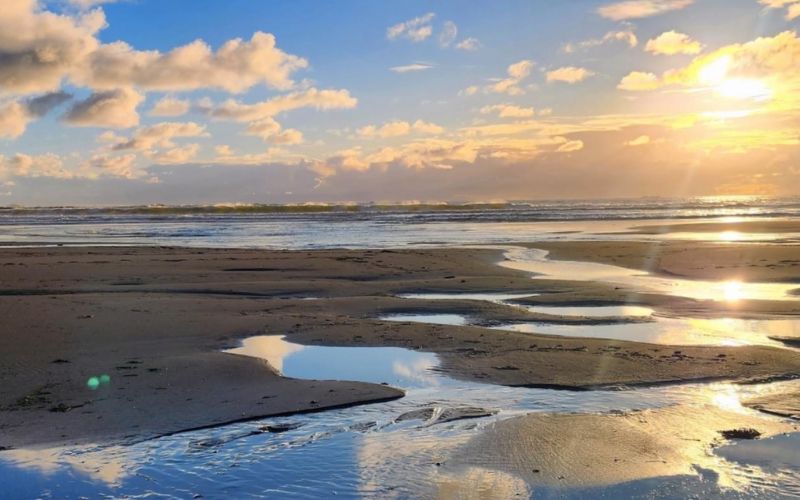
- Details
- By Native News Online Staff
The Makah Indian Tribe of Northwest coastal Washington just received a nearly $300K boon from the federal government to bolster its climate change readiness with ocean mapping.
On April 1, the National Oceanic and Atmospheric Administration (NOAA) announced the $288,000 federal funding grant to the nation as part of a larger grant from the federal Bipartisan Infrastructure Law.
The grant to the nation will build on the tribe’s prior ocean data and mapping support work while also focusing on tribal data sovereignty, outreach to and education for the next generation of Makah resource managers, and a focus on ocean climate change and ocean energy data and research needs, according to NOAA.
Makah Tribal chairman Timothy Greene said in a statement that the funding will allow the tribe to better manage its ocean resources and develop climate change solutions.
“It’s no secret that the climate crisis has a huge impact on communities along our coast, and in particular, our Tribal partners,” said Rep. Kilmer (D-WA). “This funding will empower the Makah Tribe to continue to implement critical ocean mapping that will enhance their capacity to protect both the environment and their culture. We must continue to support regional ocean partnerships like that of the Makah Tribe and the West Coast Ocean Alliance to pave the way for a more sustainable future for Indian County and our coastal communities. I am proud to support these efforts and remain committed to advocating for the resources necessary to uphold the federal government’s responsibility to Native nations.”
U.S. Representative Derek Kilmer of Washington, who supported the funding, said that supporting projects like the Makah Tribe’s mapping project is necessary “to pave the way for a more sustainable future for Indian County and our coastal communities.”
“It’s no secret that the climate crisis has a huge impact on communities along our coast, and in particular, our Tribal partners,” he said.
More Stories Like This
Gwich'in Tribal Governments Submit Comments Challenging Fish and Wildlife Service's Inadequate Environmental Review of Arctic Refuge Snow RoadRappahannock Tribe Challenges 9M-Gallon Water Plan
Feds release draft long-term plans for Colorado River management
Apache Leader Walks 60 Miles to Court Hearing That Will Decide Fate of Sacred Oak Flat
Rappahannock Tribe Raises Sovereignty and Environmental Concerns Over Caroline County Water Permit
Help us defend tribal sovereignty.
At Native News Online, our mission is rooted in telling the stories that strengthen sovereignty and uplift Indigenous voices — not just at year’s end, but every single day.
Because of your generosity last year, we were able to keep our reporters on the ground in tribal communities, at national gatherings and in the halls of Congress — covering the issues that matter most to Indian Country: sovereignty, culture, education, health and economic opportunity.
That support sustained us through a tough year in 2025. Now, as we look to the year ahead, we need your help right now to ensure warrior journalism remains strong — reporting that defends tribal sovereignty, amplifies Native truth, and holds power accountable.
 The stakes couldn't be higher. Your support keeps Native voices heard, Native stories told and Native sovereignty defended.
The stakes couldn't be higher. Your support keeps Native voices heard, Native stories told and Native sovereignty defended.
Stand with Warrior Journalism today.
Levi Rickert (Potawatomi), Editor & Publisher


